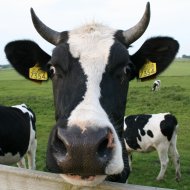Welsh minister clamps down on late TB tests

As part of the fight against bovine TB in Wales, minister for natural resources Alun Davies has tightened up on farmers who are late getting their cattle TB tested.
Cattle farmers in Wales are required to get their cattle tested for TB every 12 months, as part of the country's eradication programme.
In addition to this, Mr Davies has introduced penalties of 1 per cent of the common agricultural payments (CAP) for cattle keepers who are between one day and three months late for their test.
According to an announcement by the Welsh government, this penalty is in addition to those for farmers who are found to be between three and 12 months late for their TB test at cross-compliance inspection. The penalty for this is 3 per cent of their CAP, increasing to 5 per cent of their payment if they are more than 12 months late.
Commenting, Alun Davies said: "We are committed to ridding Wales of bovine TB and an important element of our eradication programme is identifying the disease quickly through regular testing.
"The vast majority of farmers in Wales already comply with annual TB testing and arrange their tests in good time. However, a small minority do not and this undermines our eradication programme and increases the risk of TB.
"That is why I have introduced this additional penalty that applies to all late TB tests from 1 January 2014."



 HMRC has invited feedback to its communications regarding the employment status of locum vets and vet nurses.
HMRC has invited feedback to its communications regarding the employment status of locum vets and vet nurses.